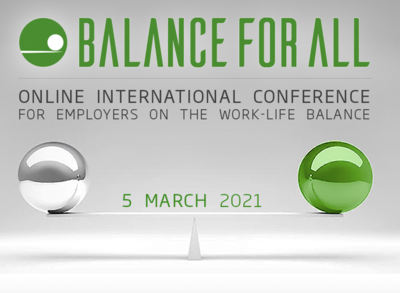
The study aimed at helping “determine the best approaches in Latvia that can provide an answer to the actual needs of employees and the opportunities for employers to ensure work-life balance”. Also, the objective of the study is to “contribute to a wider effort in Latvia and the EU as a whole to create the necessary preconditions for a better reconciliation of work, family and private life, promoting equal distribution of care and household responsibilities and thereby achieving equality between men and women with regard to labour market opportunities and treatment at work”.
In Latvia, there are several reasons why work-life balance needs to be improved. First of all, this is required by the Directive on work-life balance for parents and carers, adopted by the European Parliament and the Council in 2019. Secondly, according to the Ministry of Welfare there exist “pressing challenges in Latvia that concern: (1) the availability of care services for elderly family members; (2) the involvement of fathers in childcare and household responsibilities; (3) insufficient use of flexible working hours; (4) insufficient use of non-standard forms of employment (such as teleworking, teamwork and work on online platforms)”.
The paper contains an assessment of the situation on equal opportunities and access to the labour market in Latvia and an analysis of the actual provision of social services in relation to work-life balance goals. The experiences of Denmark and Finland law and collective agreements on work-life balance are also highlighted in the report.
As part of the study, LDDK conducted a survey to understand how life balance is achieved in Latvian companies. Based on the study’s findings, a number of recommendations are provided to Latvia’s policymakers, employers and business leaders to promote work-life balance and ensure equal opportunities and access to the labour market.
Recommendations to policymakers address:
- Youth employment and lifelong learning;
- Employment of persons with disabilities;
- Employment of carers, depending on whether they are parents on parental leave, or persons who care a child with a disability, or a disabled relative, or that have to care for other relatives.
Recommendations refer to concrete changes to Latvian laws as well as to suggestions for tax exemptions and specific service development.
Employers and business leaders are also provided with some recommendations, first of all in terms of social dialogue at the company level and company level collective agreements, that allow for more flexibility and enhanced work-life balance.
When embarking in these discussions with the employees, employers are invited to better understand what is relevant for parents, carers, employees with special needs and senior employees.
As part of the efforts within the Balance for All (B4A) project, the LDDK now is in the process of elaborating an e-training programme for employers on work-life balance aspects that will include e-tool for evaluation of companies and providing recommendations tailored on the specific categories of employees and taking into account the specificity of the work to be done.
The e-tool for evaluation of companies is developed by the Employers’ Confederation in cooperation with the International Center for Work and Family (ICWF) based in Spain.